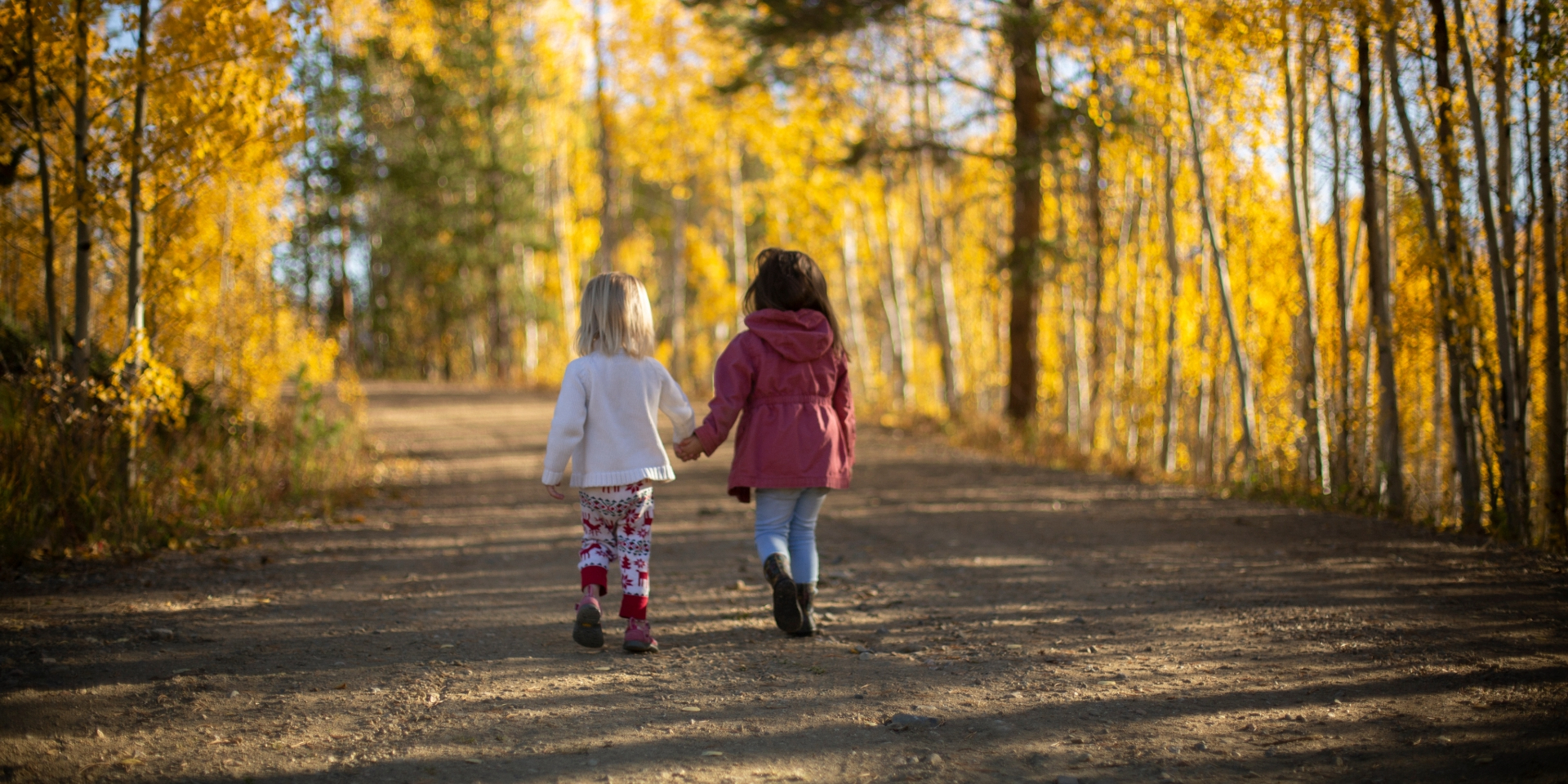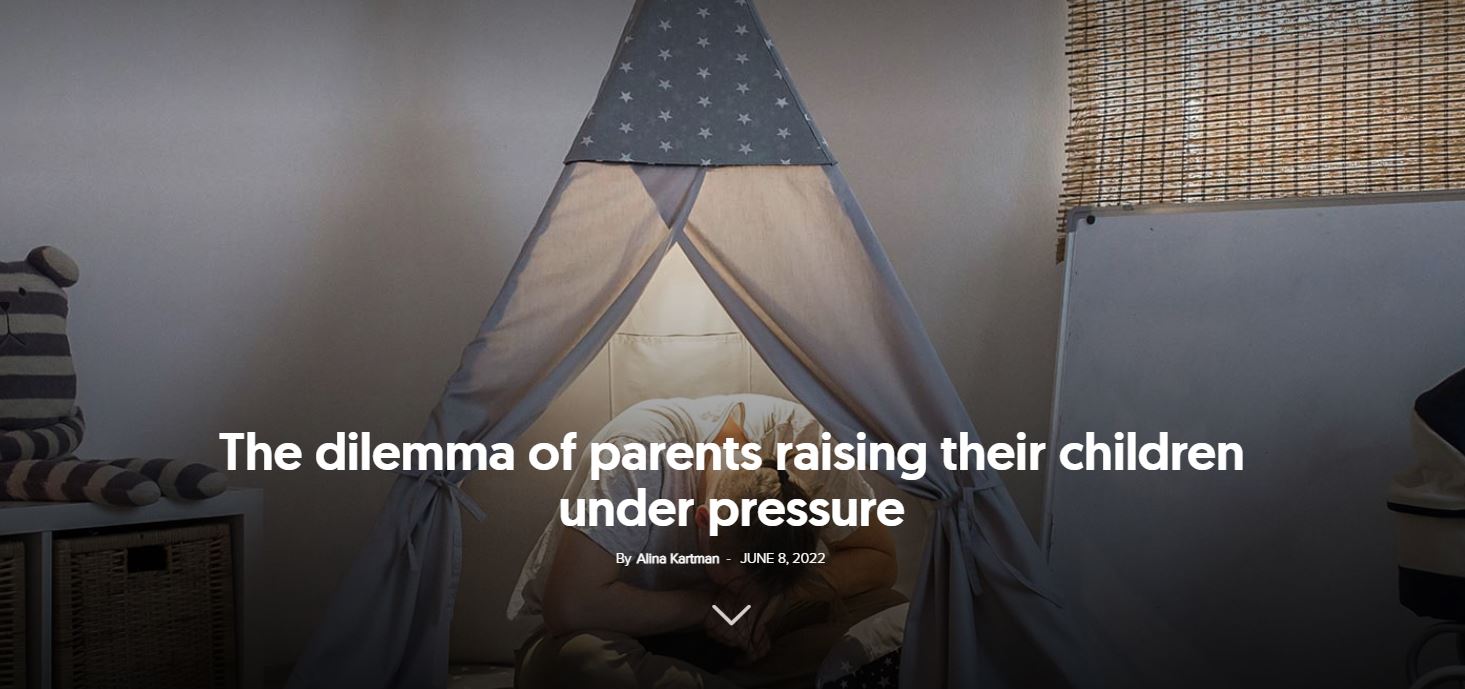On 29 May 2023, photographer Oleksandr Kuchynskyi filmed a group of children in Kiev fleeing to a shelter during an air raid.
At one point in the footage, which has been picked up by media around the world, the sound of explosions is heard and the children begin to run faster without panicking. A year of war has been enough to turn children who until recently led carefree lives into resilient children.
Resilience is defined as a person’s ability to show flexibility and adaptability when faced with extremely difficult situations, stressful events or highly adverse life circumstances.
Children in Ukraine and other countries experiencing different types of crises seem to confirm the principle attributed to contemporary American author Michael Hopf: “Hard times create strong men, strong men create good times, good times create weak men, and weak men create hard times.”
Usually, two conditions must be met for resilience mechanisms to emerge and become operational: exposure to an extremely difficult, dangerous or painful situation, followed by adaptation and successful coping. Today’s generations of youth and children have enjoyed freedom and relative prosperity without major crises. Recent generations of children have grown up on “easy street.” However, even if they never face major crises, their lives are unlikely to be entirely free of difficult situations, personal crises, and failures.
If the above principle is true, we should ask ourselves whether, in our desire to make life easy for our children, we are contributing to the development of weak characters, unable to cope with hardship. Could we find ways of involving them in activities that develop their perseverance and resilience in the face of hardship and even failure, so that they are prepared for the crises to come? In other words, is it possible to help our children become “strong people”, able to demonstrate resilience, during the “good times”?
It is important that we help our children to develop the ability to analyse and use their problem-solving skills, to maintain their emotional balance in difficult situations, and to develop and maintain an optimistic outlook on life, no matter what difficulties they may face at any given time. There are a number of things we can do to help them achieve these goals.
Help them on their way to independence.
Let children look after themselves as much as possible from an early age. If they trip or fall off their bike, as long as it’s nothing serious, let them get up on their own. Then, as they get older, let them learn to look after themselves and even give them responsibilities around the house.
Encourage them to practise a sport systematically.
Explore different sports together to find one that they enjoy! Of course, any physical activity that involves exertion develops not only physical stamina but also mental stamina, so it increases the resilience of those who practise it. In addition, sports led by specialised coaches and practised over a long period of time help to develop skills and qualities that are also essential for developing resilience in the face of adversity: learning through effort and perseverance, managing stress and pressure, teamwork and social support, setting and achieving goals, self-improvement and adaptability.
Go mountain climbing with the family.
Go to the mountains together and try longer and more challenging routes. Another idea is to cycle long distances. This develops resilience in a similar way to practising a sport. In addition, because they are done with family and possibly family friends, these activities develop communication skills in non-specific situations.
Send them to holiday camps.
Enrol them in summer camps, especially those organised in tents, as they will be exposed to different challenges they don’t normally face! A week in the open air with minimal facilities for eating, sleeping and personal hygiene, plus challenging hikes and team games, will change their perspective and make them appreciate the true value of the comforts of home. Such challenges will increase their self-confidence and physical and mental resilience, helping them to adapt quickly to changes in their environment. In addition, living together in a camp will require children to work together, share resources, and solve common problems. These experiences can develop their social resilience and communication skills, and are an opportunity to learn how to work effectively with others and resolve conflicts.
Support them in developing close and warm relationships.
Actively seek to cultivate children’s trusting relationships not only with family members, but also with family friends, teachers, coaches or other mentors. Children feel safer and more confident in their abilities when they know they can count on the support of their parents or other trusted adults. That’s why it’s important to encourage them to express their feelings and ask for support when they need it. This way, they will know that they can always turn to parents or friends for advice and help in difficult times.
Teach them to make choices.
When they are young, it will help them to observe resilient behaviour in adults. Show them how you deal with challenges and adapt to difficult situations. Then, when they are older, share with them the difficulties you are facing personally, or difficulties that threaten the common welfare of the family. Share with them the solutions you have found and invite them to propose solutions too. Consider each possible solution and its consequences together, and then involve them in the decision. Such approaches will help them develop perseverance and analytical and other problem-solving skills that will prepare them for difficult times ahead.
Encourage them to take risks.
Sometimes you can’t avoid taking risks in the decision-making process. It’s important to support them in taking such risks, as long as the consequences are not serious. Taking risks and dealing with failure will teach them valuable lessons, not only about future decisions, but also about managing feelings after failure.
Stimulate positive thinking.
Help children to look at events in a positive light and focus on the good aspects of life! Such an approach will help them to see the good in every situation they encounter, even if it is nothing more than an opportunity to grow and learn.
Make sure they have good friends.
Actively create opportunities to make it easier for children to fit in with different groups outside of kindergarten or school. In the neighbourhood or at church, try to cultivate close relationships with families who have children of a similar age and who share your values. This will make it easier for young children to develop lasting friendships. Among other things, friends are those on whose shoulders you can cry when you’re in trouble, and who can encourage you to wipe away your tears and help you find solutions.
Foster a healthy lifestyle.
Give children a balanced diet, adequate sleep and regular exercise. A healthy lifestyle contributes to overall wellbeing and physical and emotional resilience.
Teach them to trust in God.
The disciples of Jesus Christ panicked when a storm broke unexpectedly and threatened to throw them and their boat into the depths of the Sea of Galilee. After using all the strategies they had learnt from the most experienced sailors, they desperately sought out their Master and were very surprised to find Him asleep in the back of the boat (Mark 4:38). Trust in God can not only help our children sleep peacefully, but like the disciples, fill them with wonder when God’s power stops the storm and calms the rough waves. Trust in God and the habit of prayer are best cultivated in the family.
Surely there are many other ways to cultivate resilience in our children, especially since each child is unique. Therefore, in trying to help them develop resilience, it is important to have approaches that are tailored to each child’s age, temperament, personality, abilities, and disposition. Of course, we don’t want or need a major crisis to help children prepare for difficult situations, especially since there are methods and strategies for doing this in good times.
Far from being futile, such a deliberate and consistent effort will prove its worth when, like ships in a storm, our children navigate safely through the difficult situations they will face. Training, knowledge of navigational techniques and trust in heavenly help will enable the sailors to reach the desired port, even if the seas are not always calm.
Cristian Modan has worked with children and young people for 30 years as a pastor, director of the Adventist Church’s youth department, and chaplain. He holds a master’s degree in education from Southern Adventist University in the USA. He is married, with two teenage children.




















